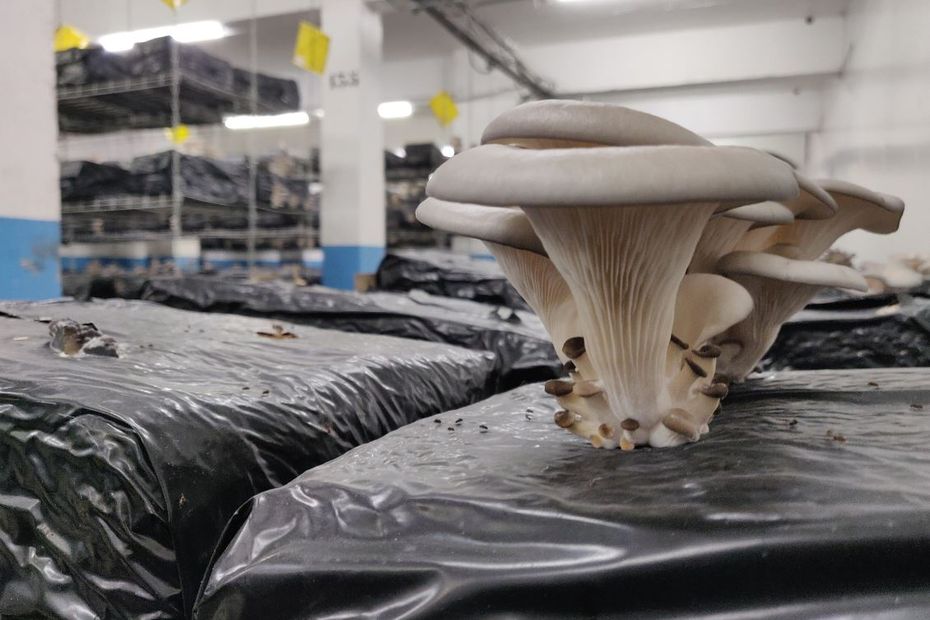Launched in 2017, La Caverne, an organic underground urban farm located in a car park close to the Porte de la Chapelle, continues its development. Cycloponics, the startup that manages the premises, is opening a new site in the 19th century.
–
To reach the mushroom farm, you have to go underground: the Caves is located on level -2 of a car park, above a public housing bar on rue Raymond-Queneau, in the 18th century. Last year, the Cycloponics startup produced nearly “60 tonnes of endive and around 30 tonnes of mushrooms“, according to Jean-Noël Gertz, director and co-founder of the urban farm.
On site, the mushroom harvest – shiitake and oyster mushroom – is done in a humid atmosphere, at the level of the old parking spaces, the numbers of which remain clearly visible. Culture blocks are literally replacing cars.
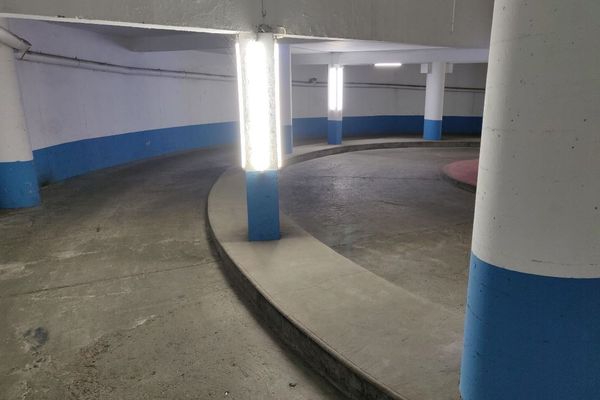
The farm is located on level -2 of the parking lot.
•
© PDB
–
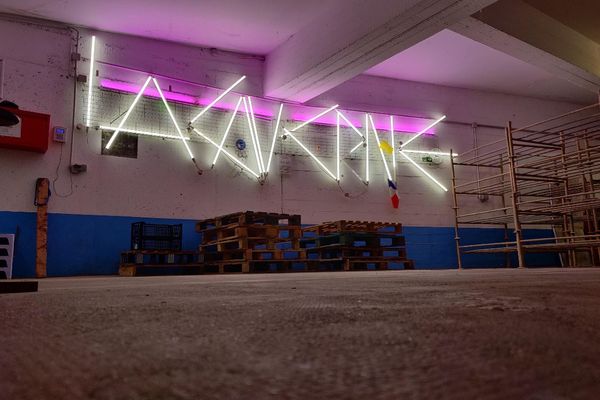

The farm is located on level -2 of the parking lot.
•
© PDB
–
It all started in Strasbourg, explains Jean-Noël Gertz: “We started with laboratory tests, before participating in a call for projects launched by the mayor of Paris Anne Hidalgo, Parisculteurs, which we won. We moved here, and in 2017 we started to develop the farm in this parking lot, which had been put into play by the social landlord ICF-La Sablière.“
We revalue concrete, and we avoid the construction of a room in the great suburbs
If the places may seem unusual, the manager confirms that the parking lot is “very suitable“to the cultivation of mushrooms:”It was a very heavily underused parking lot, which has since been turned into a farm. We revalue concrete, and we avoid the construction of a room in the great suburbs. This site is underground, so we already had the walls, we brought fluids, water and electricity… And there is a very strong thermal inertia. So there is a fairly stable temperature throughout the year, which varies between 10 and 20 degrees. So we have very little need to heat or cool our premises, it is done by itself.“
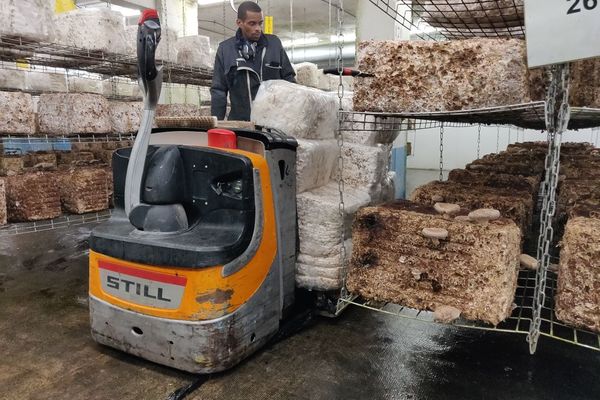

Harvesting shiitake.
•
© PDB
–
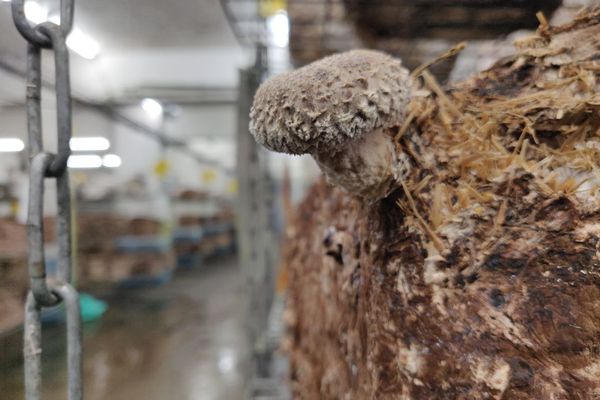

Harvesting shiitake.
•
© PDB
–
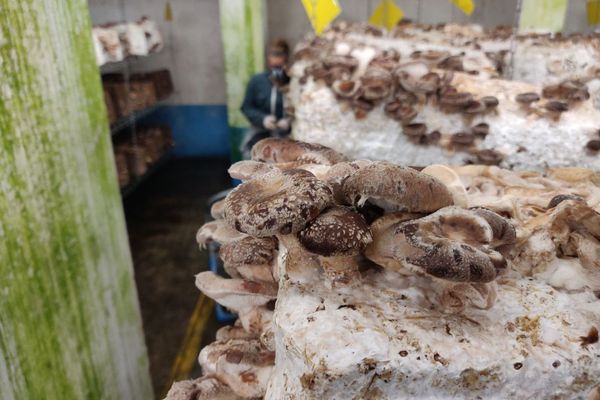

Harvesting shiitake.
•
© PDB
–
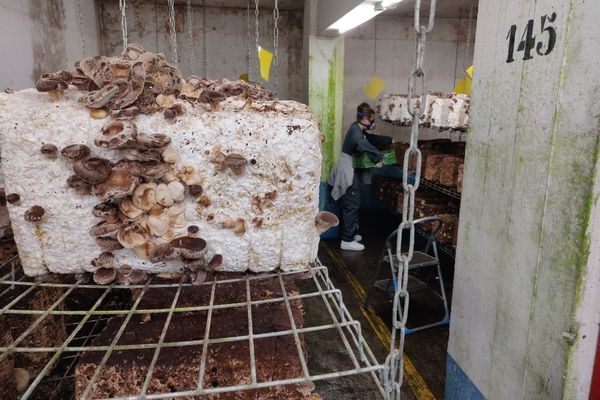

Harvesting shiitake.
•
© PDB
–
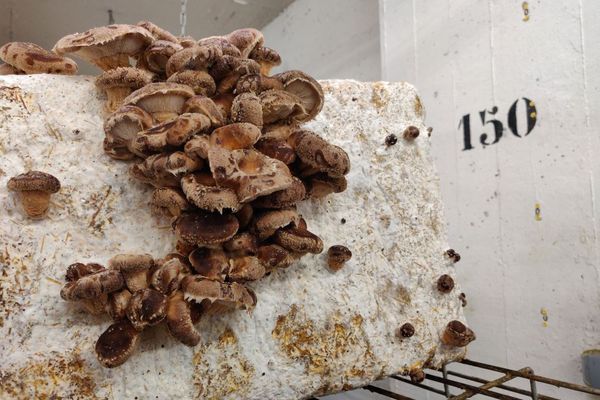

Harvesting shiitake.
•
© PDB
–
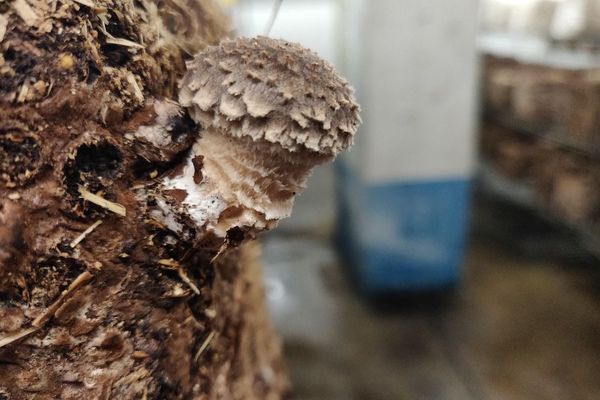

Harvesting shiitake.
•
© PDB
–
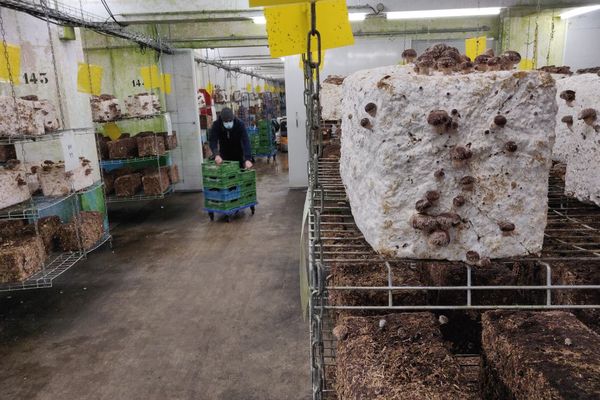

Harvesting shiitake.
•
© PDB
–
“As in any urban farm“, Jean-Noël Gertz affirms that the places are”very clean” : “It’s cleaned, the air is filtered, and the analysis results are top“.
“In large family farms, where recruitment is much more closed, it is more complicated to find one’s place”
At the same time as the harvest, some employees participate in the packaging of the mushrooms, weighed and placed in crates. Nicolas Garnier, head of culture, explains that he studied agronomy: “Working in an urban farm opens doors. In large family farms, where recruitment is much more closed, it is more complicated to find one’s place.“In total, about fifteen people work on the urban farm.
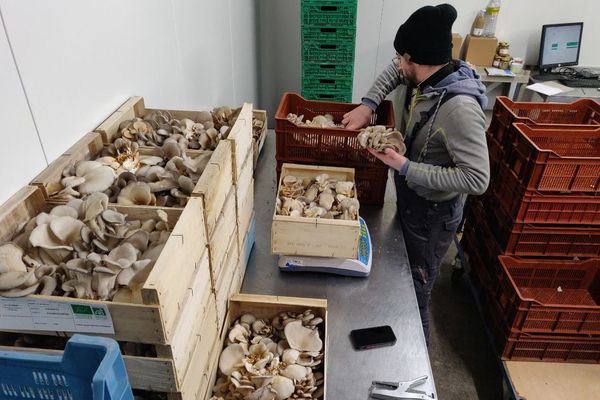

The conditioning of the mushrooms, carried out in parallel with the harvest.
•
© PDB
–
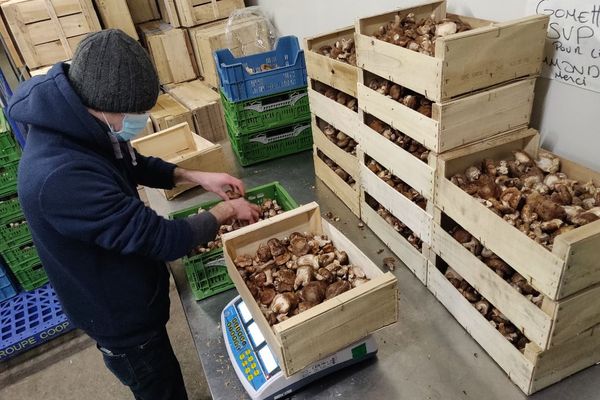

The conditioning of the mushrooms, carried out in parallel with the harvest.
•
© PDB
–
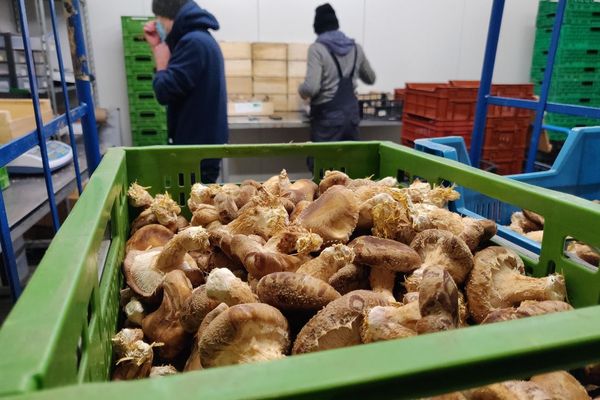

The conditioning of the mushrooms, carried out in parallel with the harvest.
•
© PDB
–
Delivery is then made in a short circuit. “Either we do this by bike, or the customers come to collect the products directly, detail Jean-Noël Gertz. We distribute via the Île de France Organic Cooperative, which brings together dozens of farmers, to organic grocery stores in the region. We also provide a few restaurants.“
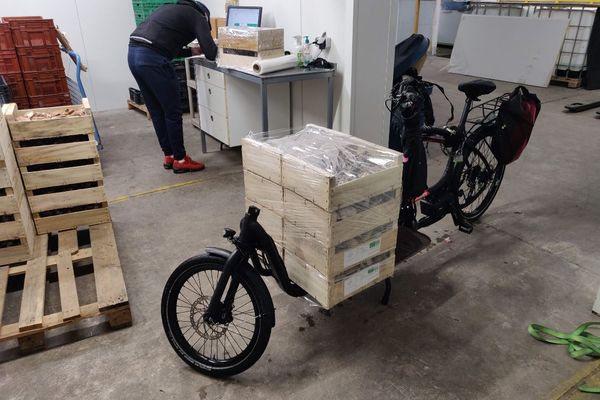

One of the bikes used for delivery.
•
© PDB
–
The premises are not open to the public. “We donate part of our production to the friendly tenants above us, however, the director states. And we also donate to social grocery stores at Porte de la Chapelle, the Restos du Cœur, Salvation Army …“
“Consumers are in demand for relocated production”
Jean-Noël Gertz, who explains how “more than 500,000 euros in turnover over one year“says the farm”is growing“season after season:”It is the success of local agriculture, organic agriculture. Consumers are in demand for relocated production.“
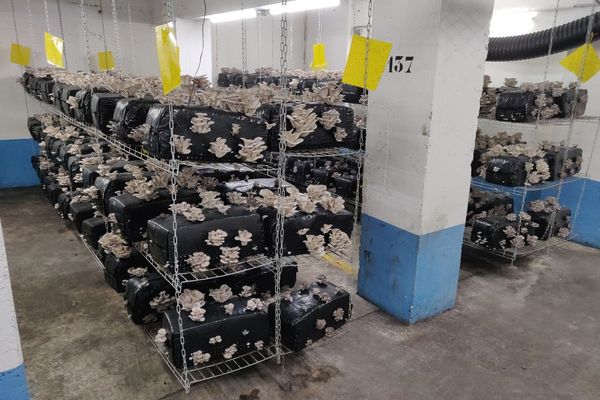

Cultivation of oyster mushrooms.
•
© PDB
–
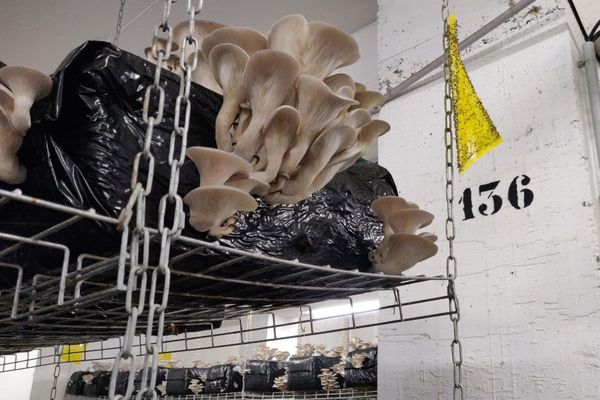

Cultivation of oyster mushrooms.
•
© PDB
–
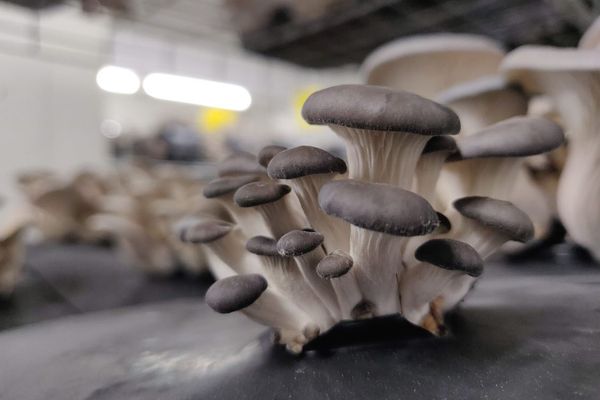

Cultivation of oyster mushrooms.
•
© PDB
–
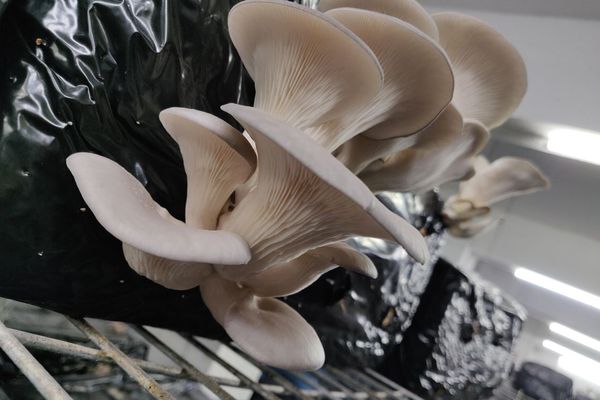

Cultivation of oyster mushrooms.
•
© PDB
–
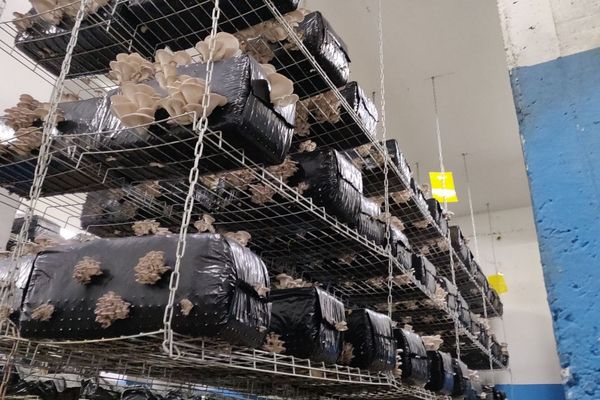

Cultivation of oyster mushrooms.
•
© PDB
–
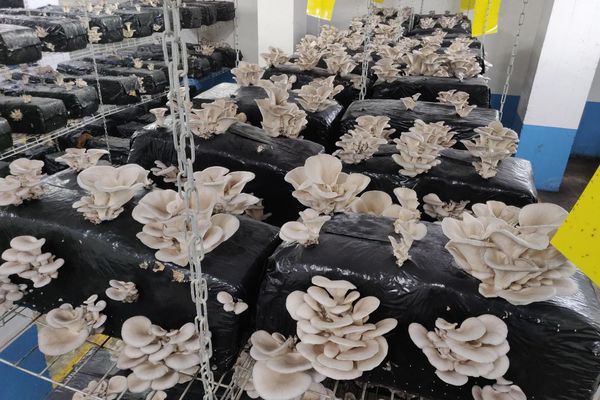

Cultivation of oyster mushrooms.
•
© PDB
–
And the startup continues to develop: “We are in the process of opening a new 2,200 m2 site dedicated to Paris mushrooms, rue Mathis in the 19th arrondissement. The only place where mushrooms are produced in Paris, in Paris itself… We also have a developing site in Bordeaux, and in Strasbourg we are supporting the National Federation of the Blind to upgrade our site and teach them how to make mushrooms.“
Note that a few other startups are welcomed in the parking lot: “We have a lot of space, so we welcome other companies in our premises, which are in the food industry. We provide them with space, and access to handling equipment, cold rooms, logistics.“Jean-Noël Gertz also ensures that the health crisis has not disrupted production:”We are agricultural producers, it’s vital, we never stopped work“.
–
